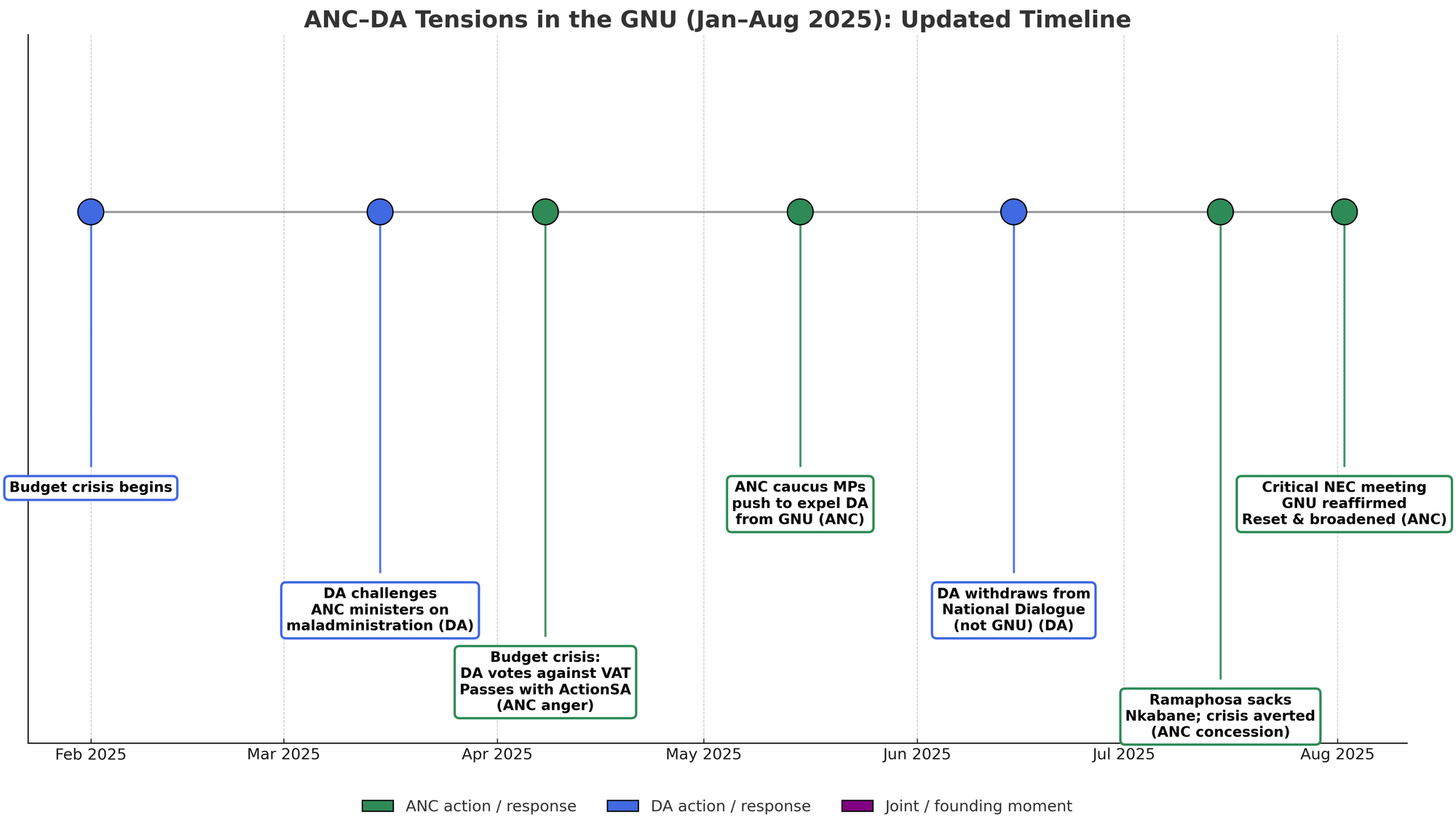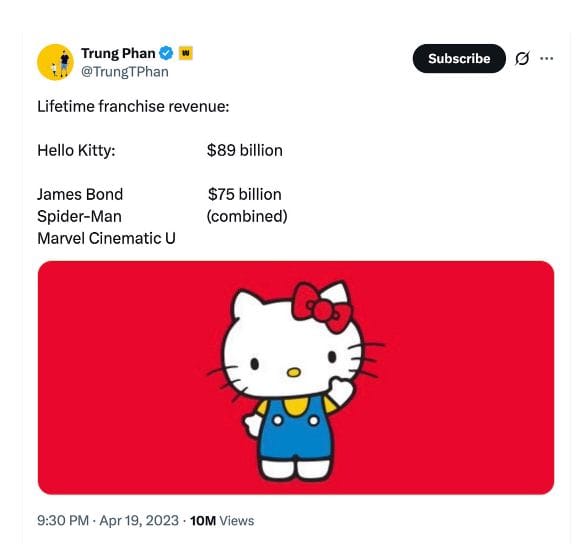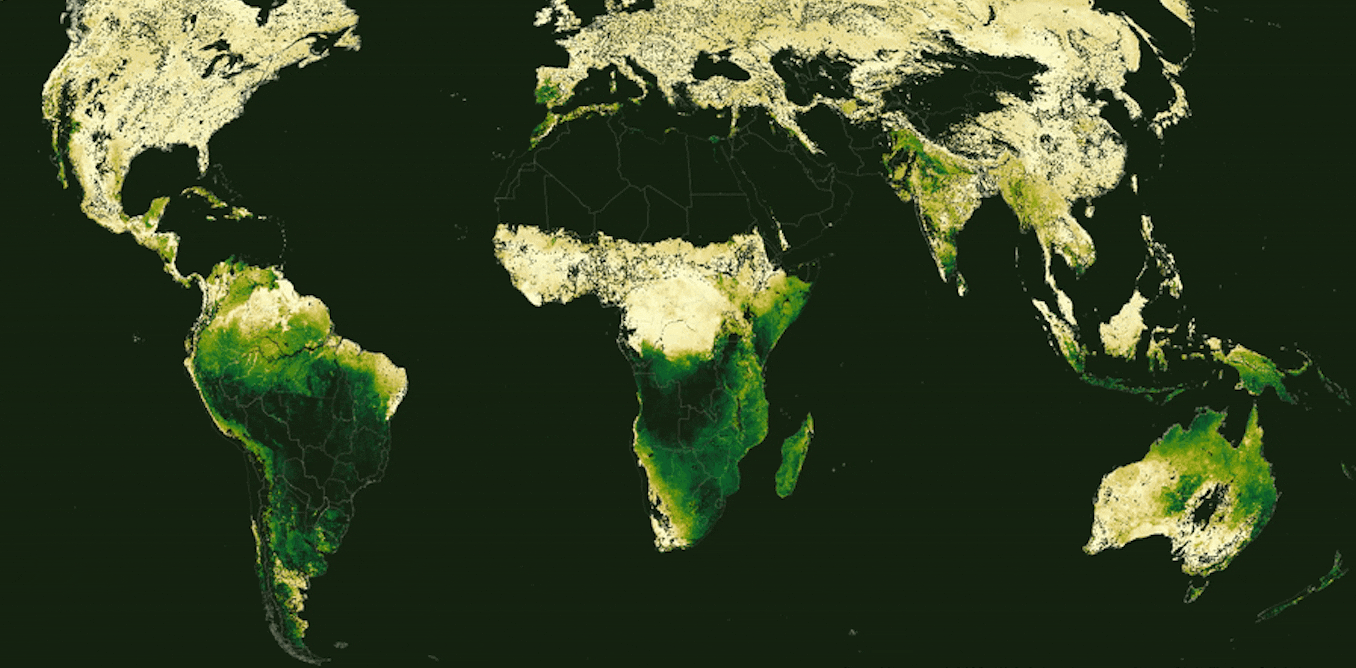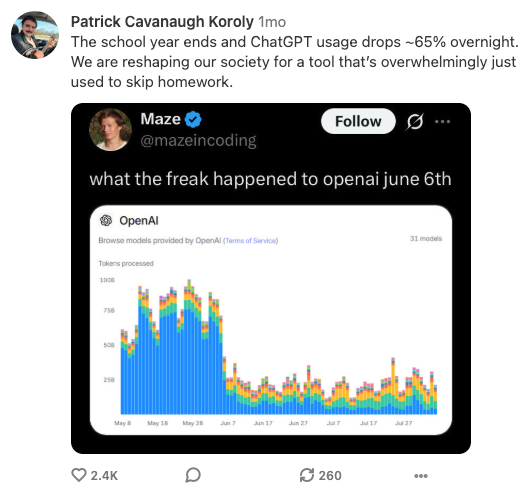During a press presentation on Friday, MTN CEO Ralph Mupita made a brief comment, almost in passing, about the various kinds of questions he gets on his international roadshows. He’s currently on one of those gruelling tours to meet global investors, taking him through Africa, Europe and the US, although this one is buoyed by the fact that MTN is on a roll. There’s nothing like a 200% jump in earnings to combat jet lag.
Mupita said that, as he heads to the UK, he expects to field plenty of questions about the state of the Government of National Unity (GNU) in South Africa. Merely raising the issue suggested he was, perhaps, a little surprised that in an hour and a half of presentation and Q&As, none of the local press had asked about it.
Which naturally reminded me: what is the state of the GNU? Presumably Mupita had an answer ready, but since nobody asked, he didn’t say—a pity, because I’d quite like to know his views, even though I suspect he would have kicked it firmly into touch, the sensible (if disappointing) default of South Africa’s corporate titans.
As it happens, I have a little inside information on the GNU. This topic was all-absorbing a few months ago, but has since slipped into what I call the South African miasma, where events don’t necessarily move fast, but the focus shifts with dizzying speed. We move, crab-like, from crisis to crisis, including the ones of our own invention. The question is more pertinent than it seems because the current truism is that the GNU is back “on track”. That is, sadly, very far from true.
Let’s go back a bit. Here’s the abbreviated timeline of the GNU’s wobble.

There was a point in June when every reputable publication in South Africa reported that the GNU was all but dead. The ANC never said definitively that it to withdraw although it did leak, via its favourite political reporters, that it was “very angry” and that some within the party were pushing to oust the Democratic Alliance (DA). The immediate trigger was the DA (and other GNU parties, as it happens) putting its foot down about a thumping VAT increase.
The case for expulsion went like this: the DA had betrayed the notion of collective responsibility for the Budget and even went to court to set aside the fiscal framework - proof, to ANC hard-liners, that the DA was acting in opposition, not like a partner. This, they argued, fit a pattern of adversarial moves, including litigation over the Employment Equity Amendment Act.
The DA had publicly vowed to vote against departmental budgets of ANC ministers it says are implicated in corruption and withdrew from the National Dialogue, seen by ANC hawks as destabilising the GNU to extract concessions. Most of all, some in the alliance felt that a workable majority was possible without the DA. After the Budget passed without DA support, the SACP and others argued the numbers proved the point: govern without the DA and show it the door.
The arguments for booting the DA sounded inevitable and overwhelming. Yet the GNU endures. What happened? Or, put another way: why did the political press present such a false picture - yet again - and what does that say about political reporting in South Africa?
Here’s where my information (caveat: sources can be wrong) comes in. The crucial ANC National Executive Committee (NEC) meeting took place from 1–4 August at the Birchwood Hotel in Boksburg. Afterward, the ANC issued this statement:

The GNU featured in just two paragraphs. The key line: “The NEC resolved to reset the GNU and mandated the Officials to engage with current GNU partners to broaden participation, strengthen the functioning of the GNU, and give full effect to the Statement of Intent.”
So what became of the bile, the tempest, and the clothes-ripping outrage? Not much. One of the questions in the room, I’m told, was whether the DA had actually breached the Statement of Intent. Answer: not formally. Next, had the ANC convened a formal meeting between the ANC and DA, as envisaged by the Statement? Answer: no. Had it convened a meeting of all GNU parties to coordinate policy? Also no.
Point 13 of the Statement of Intent says the GNU will “hold a Lekgotla (strategy session) to develop an agreed policy agenda…”. That has never happened. Instead, the ANC avoided the issue, presumably because it did not want to shift policy, and blundered on with what it wanted to do anyway.
In my experience, the ANC is actually a sophisticated political operation; it doesn’t always look it because policy is such a mess. But when it comes to the state of the party - the subject closest to members’ hearts - the arguments can be more sensible than detractors allow.
This line of argument led to the obvious question: what would happen if the ANC did kick the DA out? Answer: a possible outcome could be massive embarrassment and, quite possibly, litigation. So, contrary to the drumbeat of the press, the ANC chose not to pull the trigger.
None of which means the ANC intends to change policy unless absolutely forced to. It doesn’t.
For its part, the DA is not blameless. The Statement of Intent also commits parties to an “all-inclusive National Dialogue…”. The DA walked away from that process in anger after President Ramaphosa fired Andrew Whitfield, the DA’s Deputy Minister of Trade, in June. Tempers cooled somewhat when Ramaphosa fired Nobuhle Nkabane, the Minister of Higher Education and Training, in July, but that was effectively forced by the DA’s threat to reopen the budget crisis by voting down her budget, underlining the point above.
Given that both parties are now, strictly speaking, in breach of the Statement of Intent, you have to ask: is there a GNU at all—or just South African policy-on-the-hoof, stumbling into the future?
One critical factor is the G20 Johannesburg summit: the ANC has no appetite for a domestic bust-up overshadowing a big-ticket international gathering.
After that? My prediction: the GNU issue will be back with a vengeance. 💥
From the department of some things going purrfectly ...

Why does biodiversity happen more in "Mediterranean climates" (like the Western Cape)? Mapping helps explain ...

AI is a huge step forward and absolutely crucial - for homework ...

Thanks for reading - please do share if you have a friend (or enemy!) you think would value this blog and ask them to add their email in the block below - it's free for the time being. If the sign-up link doesn't appear, you'll find it on the site.
Till next time. 💥





Join the conversation